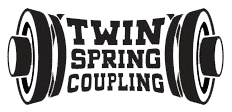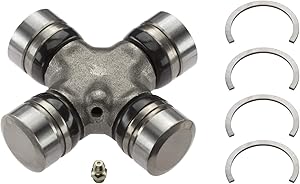The Pros and Cons of OEM Universal Joints versus Aftermarket Options – A Consumer’s Viewpoint
Table of Contents
Universal joints (commonly referred to as U-joints) play a vital role in the functionality of your vehicle’s drivetrain. They ensure smooth transmission of power from the engine to the wheels, allowing the vehicle to operate efficiently, especially under load and during turns. When it’s time to replace your universal joints, consumers are faced with a key decision: should you go for Original Equipment Manufacturer (OEM) parts or aftermarket options? This choice can affect the performance, longevity, and even the value of your vehicle.
In this comprehensive guide, we’ll explore the pros and cons of OEM universal joints versus aftermarket alternatives, focusing on major manufacturers, and offer insights to help you make an informed decision.
What are Universal Joints, and Why Do They Matter?
Universal joints are essential drivetrain components found in various types of vehicles, including cars, trucks, and SUVs. They connect two rotating shafts at various angles, enabling power transfer while accommodating differentials in alignment. In rear-wheel drive and four-wheel-drive vehicles, U-joints connect the driveshaft to the transmission and the differential, ensuring efficient rotation across different driving conditions.
A failing universal joint can lead to vibrations, clunking noises, or even loss of control, emphasizing the importance of choosing the right replacement part.
Understanding OEM Universal Joints
OEM (Original Equipment Manufacturer) parts are produced by the same companies that supply parts to your vehicle’s manufacturer. When you purchase an OEM universal joint, you’re getting a part that matches the exact specifications of your original part.
Major OEM Manufacturers
- Dana Incorporated
- Dana is a well-known name in the automotive industry, supplying OEM universal joints to various manufacturers, including Ford, GM, and FCA (Fiat Chrysler Automobiles). Their Spicer brand is a popular choice for OEM U-joints, known for durability and performance.
- GKN Automotive
- GKN is another major player in the OEM market, providing universal joints and driveline components to automakers such as BMW, Mercedes-Benz, and Volkswagen. Their products are designed to meet the stringent quality standards of premium vehicles.
- AAM (American Axle & Manufacturing)
- AAM is a global supplier of drivetrain components, including U-joints, to OEMs like General Motors and Stellantis. AAM’s parts are engineered for longevity and reliability in various vehicle types, including trucks and SUVs.
- Neapco
- Neapco supplies U-joints to many of the world’s largest OEMs, including Ford, Toyota, and Nissan. Neapco’s reputation for precision engineering and high-quality standards ensures that their OEM parts deliver reliable performance.
Pros of Choosing OEM Universal Joints
- Guaranteed Fitment and Compatibility
- OEM universal joints are designed to match your vehicle’s original specifications. This means you’re getting a part that’s guaranteed to fit and function exactly as intended by the manufacturer, ensuring that there are no compatibility issues.
- High-Quality Standards
- OEM parts must meet strict quality standards set by automakers. They undergo rigorous testing to ensure they meet the performance, safety, and durability criteria required for the vehicle’s intended use.
- Warranty Coverage
- When you purchase an OEM U-joint, it often comes with a warranty from the vehicle manufacturer or the part supplier. This provides peace of mind that if the part fails prematurely, you’re covered for replacement or repair.
- Preserves Vehicle Resale Value
- Using OEM parts can help preserve your vehicle’s resale value. When it comes time to sell your car or truck, prospective buyers often prefer vehicles maintained with OEM components, as it signals that the vehicle has been properly cared for and maintained to factory standards.
- Long-Term Reliability
- Since OEM parts are built to the same specifications as the original parts, you can expect them to offer similar longevity. This ensures long-term reliability, which is particularly important for critical components like U-joints that directly affect the vehicle’s drivability.
Cons of Choosing OEM Universal Joints
- Higher Cost
- OEM parts tend to be more expensive than aftermarket options. The added cost is primarily due to the rigorous testing and quality assurance processes involved in producing these parts, as well as the premium associated with the automaker’s branding.
- Limited Availability
- Depending on the make and model of your vehicle, finding OEM universal joints may be more challenging than locating aftermarket alternatives. Some OEM parts may also have longer lead times, especially for older or less common vehicles.
- Lack of Customization
- OEM parts are designed to meet the original specifications of your vehicle. If you’re looking for performance upgrades or specialized components for off-roading or high-performance driving, OEM parts may not offer the customization options available in the aftermarket.
Exploring Aftermarket Universal Joints
Aftermarket universal joints are produced by third-party manufacturers that are not affiliated with the vehicle’s original automaker. These parts are designed to fit a wide range of vehicles and are often available at a lower cost than OEM parts.
Major Aftermarket Manufacturers
- Moog
- Moog is a well-known brand in the aftermarket parts industry, offering high-quality universal joints for a wide range of vehicles. Moog’s products are popular for their durability, performance, and availability in performance-oriented options.
- Precision
- Precision is another leading aftermarket manufacturer of universal joints, known for offering affordable yet reliable options. Their parts are designed for various vehicle makes and models, catering to both daily drivers and off-road enthusiasts.
- SKF
- SKF is a globally recognized aftermarket supplier of automotive components, including U-joints. Known for their engineering excellence, SKF offers durable and high-performance U-joints that cater to a broad spectrum of vehicles.
- ACDelco
- ACDelco offers a wide variety of aftermarket universal joints for General Motors vehicles and beyond. Known for their reliability, ACDelco parts are a trusted option for consumers seeking affordable and quality aftermarket components.
Pros of Choosing Aftermarket Universal Joints
- Lower Cost
- Aftermarket parts are typically more affordable than OEM parts. This can be particularly advantageous if you’re on a budget or have an older vehicle where spending a premium on OEM parts may not be justifiable.
- Greater Availability
- Aftermarket universal joints are widely available and can be found at most auto parts stores and online retailers. This makes it easier to source the parts you need quickly, especially if you’re dealing with an unexpected breakdown.
- Wide Range of Options
- The aftermarket offers a broader selection of U-joints compared to OEM options. Whether you’re looking for a standard replacement, a heavy-duty option for off-roading, or a high-performance part, the aftermarket has something to suit your needs.
- Potential for Improved Performance
- Some aftermarket manufacturers offer universal joints that are designed to outperform OEM parts. For example, if you frequently tow heavy loads or engage in off-roading, you may find that certain aftermarket U-joints offer enhanced durability and performance compared to the OEM equivalents.
- Customization and Specialization
- Aftermarket manufacturers often cater to niche markets, offering specialized U-joints for specific applications. Whether you need a universal joint with grease fittings for easier maintenance or a heavy-duty option for rugged terrain, the aftermarket provides more flexibility to tailor parts to your needs.
Cons of Choosing Aftermarket Universal Joints
- Variable Quality
- The quality of aftermarket universal joints can vary significantly depending on the manufacturer. While some aftermarket parts meet or exceed OEM standards, others may fall short in terms of durability and performance. It’s essential to do your research and choose reputable brands to avoid subpar products.
- Fitment Issues
- Aftermarket parts are designed to fit a broad range of vehicles, which can sometimes lead to fitment issues. Unlike OEM parts, which are guaranteed to match your vehicle’s specifications, aftermarket parts may require modifications or adjustments to install properly.
- Limited Warranty Coverage
- While some aftermarket manufacturers offer warranties, they may not be as comprehensive as those provided with OEM parts. This means you could be taking on more risk if the part fails prematurely.
- Potential Impact on Resale Value
- Using aftermarket parts, especially lower-quality ones, can potentially affect your vehicle’s resale value. Buyers may be wary of vehicles that have been repaired with non-OEM components, particularly if those parts are perceived as lower quality.
Making the Right Choice: OEM vs. Aftermarket Universal Joints
Ultimately, the decision between OEM and aftermarket universal joints depends on your specific needs, budget, and vehicle. Here’s a quick summary to help you weigh your options:
- Choose OEM Universal Joints if:
- You want guaranteed fitment and compatibility with your vehicle.
- You’re looking for high-quality parts with a warranty.
- You prioritize preserving your vehicle’s resale value.
- You’re willing to pay a premium for long-term reliability.
- Choose Aftermarket Universal Joints if:
- You’re on a budget and seeking a more affordable option.
- You need the part quickly and want greater availability.
- You’re looking for performance upgrades or specialized options.
- You’re comfortable researching and selecting reputable aftermarket brands.
The Pros and Cons of OEM Universal Joints versus Aftermarket Options – A Consumer’s Viewpoint Conclusion
Whether you opt for OEM or aftermarket universal joints, it’s essential to prioritize quality and reliability, as these components directly impact your vehicle’s performance and safety. If you value peace of mind, sticking with OEM parts from trusted manufacturers like Dana, GKN Automotive, or AAM might be your best bet. However, if you’re looking for affordability and customization, aftermarket options from brands like Moog, Precision, or SKF could offer the flexibility you need.
By carefully considering the pros and cons of each option, you can make a well-informed decision that suits your vehicle

